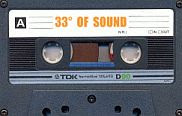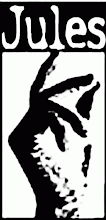
Peter Tosh, born Winston Hubert McIntosh, nicknamed "Steppin' Razor" (19 October 1944 – 11 September 1987) was, along with Bob Marley and Bunny Wailer, an equal part of the inner-triangle of the band that would come to be known as “The Wailers” (Tosh would later explain that they chose the name Wailers because to "wail" means to mourn or to, as he put it, "...express ones feelings vocally"). This band would go on to change the course of both Musical and Jamaican history.
A talented guitarist (he taught Bob Marley how to play) and charismatic singer, his giant Six foot five frame and deep booming voice echoed a strong revolutionary and volatile spirit. This spirit would both drive the band forward in its early years, as well as lead to his eventual departure, just as the band stood on the edge of global success.
In 1973, Tosh was driving home with his girlfriend Evonne when his car was hit by another car driving on the wrong side of the road. The accident killed Evonne and severely fractured Tosh's skull. He survived, but became even harder to deal with. After Island Records president Chris Blackwell refused to issue his solo album in 1974, the volatile Tosh and Bunny Wailer left the Wailers, citing the unfair treatment they received from Blackwell, to whom Tosh often referred with the derogatory play on Blackwell's surname, 'Whiteworst'.
Peter Tosh cared not of fame, nor money. His drive was formed within a deep spiritual and political soul that strived for fairness and equality, opposed war, and the extremes of Capitalism, and of course, advocated the legalisation of Cannabis. These themes stirred within his music and his heart throughout his life.
Peter Tosh also had a quirky side. He learned how to Unicycle, and would often arrive on stage in this manner during live shows towards the end of his career.
Tosh possessed a sarcastic outlook on the world, and this carried over to his lyrics. He would merrily twist words around to better reflect his true feelings. This trick of language was later emulated by many other reggae artists. Here are some examples of Toshisms;
America - Asadica
Blackwell - Whiteworst (Chris Blackwell of Island Records)
Buckingham - Buk-In-Hamm
Bureaucrats - Bureaucraps
Christopher Columbus - Christ-t'ief Come-rob-us
City - Shitty
Disc jockey - District johncrow (johncrow is a Jamaican vulture)
Ganja (Prohibition) - Gone-Jah
Germany - Germs-many
Judge - Grudge
Inequity - Out-a-quit-ty
Kingston - Killsome
L.A. - Hell A (Los Angeles)
Lawyer - Liar
LSD - Lucifer Son of Devil (referred to as the drug of the devil)
Managers - Damagers
Marco Polo - Marc O. Polio
New York City - Boo York Shitty
Politics - Politricks
Prime Ministers - Crime Ministers
Situation - Shituation
System - Shitstem
Technology - Tricknology
Trinidad - Trinibad
Producer - Reducer
Unicycle - I and I-cycle
Understand - Overstand
Tosh’s first three solo albums, Legalize It (1976), Equal Rights (1977) and Bush Doctor (1978) showcase him at his politicised best. The latter album contains collaborations with two other giants of popular music - a vocal duet with Mick Jagger on a cover of The Temptations’ “Don’t Look Back” and Keith Richards playing guitar on “Stand Firm”, a song that contains the following humorously profound lyric;
“All you got to do, live clean,
Let your works be seen.
Stand firm,
Or you gonna feed worm”
Interestingly, whilst this song is delivered in Tosh's usual reggae vocal style, and with a solid reggae drum beat, Richards infuses a marvellous Country element to his guitar track, producing an extremely original musical hybrid. Tosh also experimented with different Musical forms on his next album, Mystic Man (1979), and produced the now legendary Reggae-Jazz-Funk-Disco anthem, "Buk-In-Hamm Palace"...
"Light your spliff
Light your chalice
We gonna smoke it in a Buk In Hamm Palace"
In 1987, Tosh was awarded a Grammy for Best Reggae Performance for "No Nuclear War". However, on 11 September 1987, just after Tosh had returned to his home in Jamaica, a three-man gang came to his house demanding money. Tosh replied that he did not have any with him but the gang did not believe him. They stayed at his residence for several hours in an attempt to extort money from Tosh. The leader of the gang, Dennis 'Leppo' Lobban, a man whom Tosh had befriended and tried to help find work after a long jail sentence became more and more frustrated. He put a gun to Tosh's head and fired twice, mortally wounding him. Leppo turned himself over to the authorities, and was tried and convicted in the shortest jury deliberation in Jamaican history: eleven minutes. He was sentenced to death, but his sentence was commuted in 1995 and he remains in prison. Neither of his two alleged accomplices were found, though rumours persist that both were gunned down in the streets sometime after.
Although Peter Tosh worked with, guided and influenced one of the most influential musicians of all time, his own music deserves to be held up as an example of what happens when music (or indeed art) holds up a banner to the world and says...
This is what I believe in. What I believe in is good. Join me, or get out of my way.


